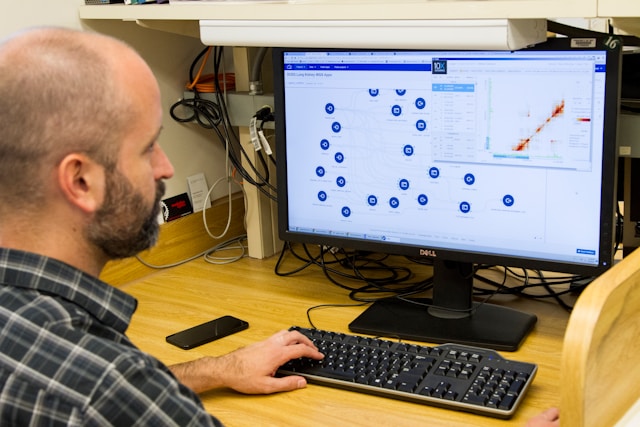
The medical care sector is continually faced with the challenge of enhancing patient treatment while controlling expenses.. Fortunately, advancements in cloud computing are providing new ways to streamline healthcare data processes. This technology enables healthcare providers to deliver faster, more efficient, and more personalised care.
This blog explores how cloud solutions are revolutionising healthcare data management, offering security and accessibility.
Enhanced Data Management
Centralised Storage and Access
A key advantage of adopting cloud solutions in healthcare is the ability to centralise patient data, significantly enhancing the efficiency and coherence of medical data management. In contrast to traditional systems that disperse information across various locations, cloud storage consolidates all patient information into a single repository. This unification simplifies the way medical care providers access and manage patient records, thereby diminishing the time dedicated to retrieval.
For instance, a doctor can quickly access a patient’s history, lab results, and other essential data from a centralised database. This accessibility improves the efficiency of diagnoses and treatment plans, leading to better patient outcomes.
Improved Data Integration
Healthcare involves various data types, including electronic health records (EHRs), medical images, lab results, and insurance information. These solutions facilitate the integration of these disparate types into a single system, which is crucial for developing comprehensive patient profiles and supporting coordinated care.
Cloud platforms allow organisations to easily aggregate and analyse data from multiple sources. This capability supports more informed decision-making and enables providers to offer personalised treatment plans based on the integrated information.
Scalability and Flexibility
Meeting Changing Demands
Cloud computing offers scalable solutions that can grow with a healthcare organisation’s needs. Whether expanding storage capabilities or adding new services, these platforms can adjust resources quickly and efficiently. This scalability ensures that providers can handle increasing amounts of information without significant hardware investments. Residential Treatment Facility Software allows for growth that complements the ever-increasing population and need for medical facilities, enabling a company to add to its practice seamlessly.
Flexibility for Innovation
The flexibility of cloud solutions also encourages innovation in healthcare. Developers can use these platforms to create and test new applications without extensive infrastructure. This flexibility speeds up the development of new solutions, such as telemedicine apps, AI diagnostic tools, and more, enhancing the overall quality of care.
Enhanced Security and Compliance
Robust Data Protection
Cloud solutions offer robust security features that protect data from unauthorised access and cyber threats. These features include encryption, access controls, and secure transmission protocols. Furthermore, numerous providers adhere to health regulations, guaranteeing that they uphold the required standards for privacy and security.
Disaster Recovery and Data Backup
Cloud solutions also enhance data resilience through improved disaster recovery and backup procedures. In contrast, providers typically offer automated backup and redundant systems to ensure data is always available, even in a failure.
Streamlining Administrative Processes
Reducing Costs
Cloud computing can notably lower the expenses related to the management of healthcare information. By adopting these services, organizations can sidestep the costs associated with maintaining on-premise servers and other hardware infrastructure. Additionally, the pay-as-you-go structure of these services means that organisations incur expenses only for the specific storage and services they utilise.
Automating Routine Tasks
Cloud solutions can automate many routine administrative tasks like scheduling, billing, and compliance reporting. For example, cloud-based scheduling systems can automatically update appointments and send patient reminders, reducing no-shows and optimising clinic operations.
Improving Patient Experience
Telehealth and Remote Monitoring
The cloud facilitates telehealth by providing the necessary infrastructure for video calls, data sharing, and remote patient monitoring. This capability is especially beneficial for patients in rural areas or those who find travelling to healthcare facilities difficult.
Cloud solutions are transforming the healthcare industry by streamlining healthcare data processes, enhancing security, and improving patient care. With centralised management, scalable resources, robust security, and improved patient engagement, cloud computing is set to be a cornerstone of modern healthcare. By embracing cloud technology, providers can improve operational efficiency and deliver superior patient experiences, making healthcare more accessible and effective for everyone.



